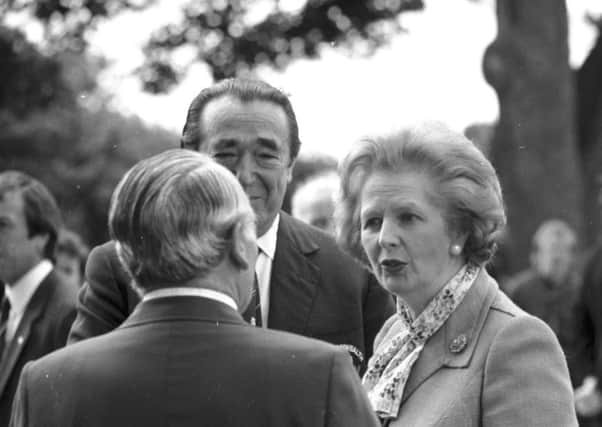Maxwell lost fight with Thatcher over Edinburgh Games funding


After scores of nations boycotted the Games in protest over apartheid in South Africa, the competition faced a major funding crisis and was in danger of falling through.
Maxwell, a former Labour MP who bought the Daily Mirror, including the Daily Record and Sunday Mail, in 1984 and was later found to have plundered its pension funds, stepped in to take on the “onerous task” of rescuing the games, promising to raise private contributions and put in his own cash. But with a shortfall of millions, he repeatedly asked the Tory government to help plug the funding gap.
Advertisement
Hide AdAdvertisement
Hide AdDespite his threats that the Games could face the “national humiliation” of having to be cancelled, the prime minister stood firm. Maxwell later wrote to her to say he respected how she “stuck to her guns”, setting aside a £2 million loan to bail out 90 companies that gave money to the Games to maintain the event’s “dignity”.
Her government had declared as far back as 1979 that taxpayers’ money would be off limits for the Games, with funding having to come from sponsors.
But with Britain increasingly seen as a “friend” to apartheid because of its opposition to sanctions, 32 of the 59 eligible countries boycotted the competition. Sponsors pulled out, leaving just £4m raised of the expected £12m cost.
Scottish Secretary George Younger suggested Mrs Thatcher might ask business leaders for contributions.
But files released by the National Archives at Kew under the 30-year rule reveal the Cabinet Office’s reservations at the “slightly demeaning” involvement of the PM writing “begging letters”.
Maxwell took over as Games chairman in June 1986 and the following month wrote to the new Scottish Secretary, Malcolm Rifkind, to outline the “major failure” in publicising the event and to ask for £2.5m towards the £3.8m deficit. Mr Rifkind proposed offering £1.5m but this was rejected. He begged the Treasury to reconsider, warning of a “doomsday” scenario to no avail. In a later letter to Maxwell, Mrs Thatcher said she was “grateful” for his efforts, telling him the government would have “put at risk its credibility” if it had gone back on its word.